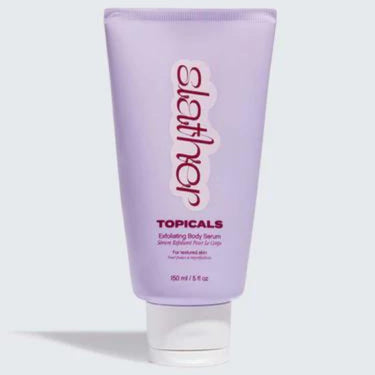
Get answers to some of the most frequently asked questions about dark spots and textured skin below!
Do Skin Dark Spots Go Away?
Skin dark spots can fade or go away on their own depending on the cause. For example, dark spots caused by sun exposure may gradually fade over time as the skin repairs itself. Dark spots caused by acne or other skin conditions may also improve with proper skin care and medication.
Can Stress Cause Textured Skin?
Yes, stress can cause textured skin. When a person experiences prolonged stress, it causes the body to produce more cortisol, a hormone that can lead to skin changes. These changes can include thinning of the epidermis, dryness, and redness, as well as textured patches and lesions.
Is Textured Skin Reversible?
Yes, textured skin can be reversed. Depending on the cause of the textured skin, treatments such as laser resurfacing, chemical peels, dermabrasion, and topical creams may be used to reduce its appearance. These treatments work to improve skin tone and texture by removing dead cells from the surface of the skin and stimulating collagen production.
Is Textured Skin Healthy?
Textured skin is generally considered healthy, as it is a natural product of the aging process and gives skin texture and elasticity. Textures can range from fine lines and wrinkles to larger folds, dimples, or creases. Regular moisturizing with gentle products can help keep textured skin healthy.
Can Retinol Lighten Dark Spots?
Retinol can help lighten dark spots by increasing cell turnover and promoting exfoliation. It inhibits melanin production and encourages the growth of new, evenly pigmented skin cells. Consistent and proper use of retinol can contribute to fading dark spots and achieving a more even skin tone over time.
What Are Dark Spots?
Dark spots are an example of hyperpigmentation - a mark or discoloration of the skin caused by excess melanin. Dark spots can appear on the face and body and may be localized to one area or spread out over larger areas. They can take many forms - including freckles, age spots, melasma, & more.
How Can You Treat Dark Spots on Face?
Treatments for dark spots on the face vary depending on the cause and severity of the discoloration. Common treatments include topical skincare products containing hydroquinone, kojic acid, or retinol; laser therapy, and chemical peels. For best results, consult with a dermatologist to determine which treatment plan is best suited for your particular skin condition.
Are Dark Spots Permanent?
Dark spots may not be permanent, depending on the underlying cause. Certain treatments such as topical skincare products and laser therapy can help lighten or fade dark spots to reduce their appearance. However, it is important to consult with a dermatologist to determine the best treatment plan for your particular condition.
Are Chemical Peels Safe for Textured Skin?
Chemical peels can be safe for textured skin when performed correctly. They help improve skin texture by removing dead skin cells and promoting cell turnover. However, the suitability depends on the skin type, peel strength, and individual skin concerns. It's crucial to consult a dermatologist to determine the appropriate type and frequency of peels for your specific skin condition.
How to Choose a Cleanser for Textured Skin?
Choosing a cleanser for textured skin involves selecting a product that is gentle yet effective. Look for cleansers with ingredients like salicylic acid or glycolic acid to help exfoliate and smooth skin texture. Avoid harsh scrubs or soap-based cleansers that can irritate. Opt for non-comedogenic and hypoallergenic formulations to prevent pore-clogging and skin reactions.
Can Makeup Worsen Textured Skin?
Yes, makeup can worsen textured skin if not used properly. Heavy, comedogenic makeup can clog pores, leading to breakouts and increased skin texture. Additionally, using expired or unsuitable makeup products can irritate the skin. Choosing non-comedogenic, skin-friendly products and maintaining a thorough cleansing routine can mitigate these effects.
How Does Retinol Affect Skin Texture?
Retinol, a derivative of Vitamin A, positively affects skin texture. It promotes cell turnover and collagen production, helping to smooth out fine lines, wrinkles, and uneven texture. Regular use can lead to firmer, clearer, and more even-toned skin. However, it can initially cause dryness and irritation, requiring gradual introduction into skincare routines.
How to Protect Textured Skin in Winter?
To protect textured skin in winter, use a heavier, hydrating moisturizer to combat dryness. Incorporate products with hyaluronic acid and ceramides to strengthen the skin barrier. Limit exfoliation to avoid irritation. Apply sunscreen daily, as winter sun can still damage skin. Use a humidifier indoors to maintain moisture levels.
What Role Does Genetics Play in Skin Texture?
Genetics play a significant role in determining skin texture, influencing factors like skin sensitivity, natural moisture levels, and predisposition to certain skin conditions like acne or eczema. These genetic factors can affect how skin reacts to environmental stressors, aging, and skincare products, ultimately influencing overall skin texture and health.
What Are the Symptoms of Contact Dermatitis?
Contact dermatitis symptoms include redness, itching, swelling, and a rash. Blisters may form, oozing and becoming crusty. The skin may become dry, cracked, and feel tender or hot. Symptoms appear on the area that touched the irritant or allergen and can develop within minutes to hours.